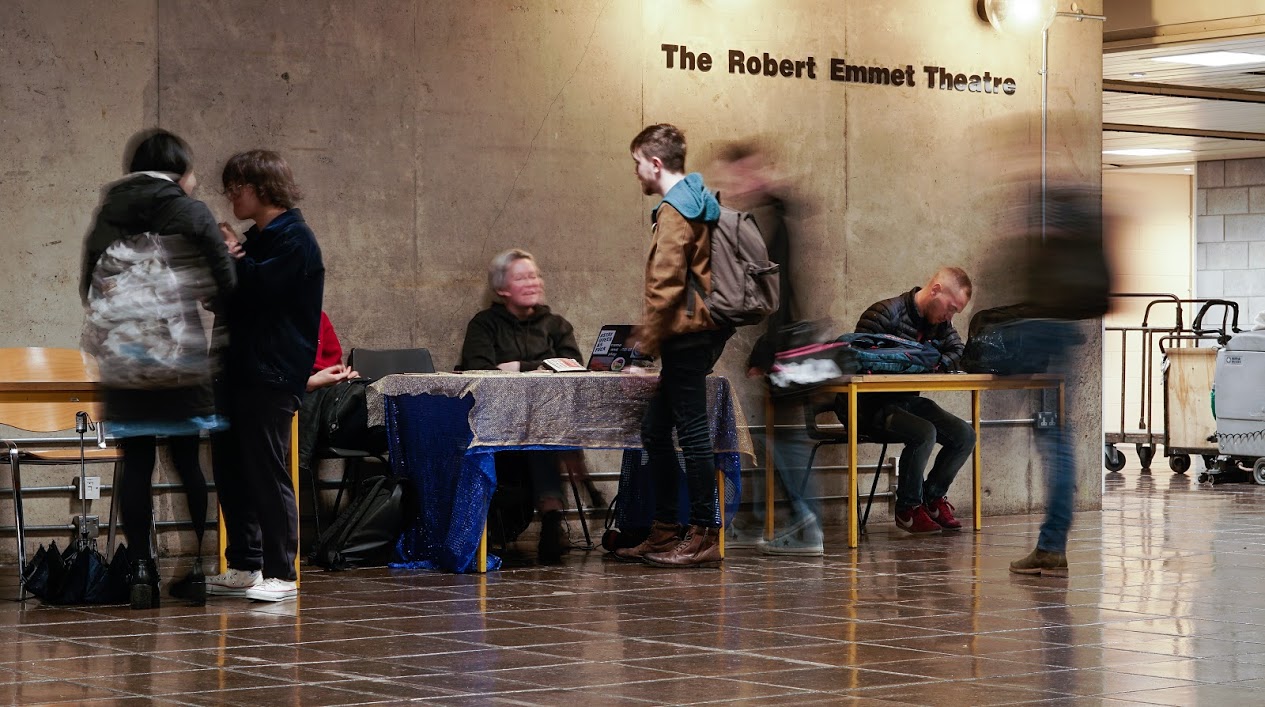This academic year Trinity is welcoming four new societies: Trinity Social Democrats, DU Astrological Society, Trinity Young Greens, and DU Rover Society. Further diversifying the already broad range of societies which the university has to offer, this quartet looks set to shake up Trinity’s political and social spheres in a considerable way.
Trinity Social Democrats is unlike its counterparts as it is not actually a new society by definition. It was first established in 2015 but low membership forced it to cease operating as a full college society just three years later. However, the society is now back in action and its members are ready to promote the political party’s brand of centre-left politics on campus once again.
Speaking to Trinity News, Trinity Social Democrats’ chairperson, Cillian Gartlan, states that their aim is to “open up discussions around areas of politics that are usually quite divisive and often occur in vacuums.” He claims that their interest does not lie in convincing students to vote for Social Democrats when election time comes around. Instead, “The goal is that students will be more informed when choosing who to vote for in the next election, and to build more cooperation between Irish left-wing parties.”
Over the course of the year, the society plans to host discussions about a variety of topics, such as diversity in politics and environmental policy, in which they will collaborate with both experts and other college political societies with comparable ideologies to their own. Gartlan believes that “there are enough similarities and differences between some political societies to have some very constructive sessions.”
“While Trinity Social Democrats promote down-to-earth political debate, DU Astrological Society is more concerned with discussions of the celestial kind.”
While Trinity Social Democrats promote down-to-earth political debate, DU Astrological Society is more concerned with discussions of the celestial kind. Astrology is the study of the movements and positions of astronomical objects. Astrologers interpret these movements as influencing human and natural affairs, and therefore attempt to divine meaning and causality from the celestial calendar. Formed in March of this year, the society aims to teach students about astrology and to emphasise the fun and accessible side of the pseudoscience. The events which they intend to run include coffee mornings, astrology themed parties, talks from guest speakers, and collaborative events with other societies.
It is unsurprising that this February, after a prolonged hiatus, Trinity Young Greens became an official society of Trinity once again. Previously political underdogs, the Green Party defied odds and gained 49 seats in the most recent local elections, which is over four times the amount that they held after the previous elections of 2014. Furthermore, Green Party candidates Ciarán Cuffe and Grace O’Sullivan were elected to European Parliament. As climate change is such a prominent issue at the moment, the society will likely take full advantage of Europe’s “green wave” and attract significant interest from students.
Speaking to Trinity News, Trinity Young Greens’ chairperson, Tate Donnelly, says that the society aspires to “grow the progressive Green movement in Trinity and empower passionate activists to achieve great things.” They plan to do this by organising a selection of events which will include talks, social events, and trips away.Moreover, they will be involved in campaigns relating to national concerns such as direct provision, homelessness, and the environment.
Another new society which emphasises the importance of the natural world is DU Rover Society. The group will promote scouting values in college, enable students to engage in outdoor activities, and aid members of Scouting Ireland to continue scouting during their time in third level education. In the context of Scouting Ireland, a “Rover Scout” refers to a member who is between the ages of 18 and 26. In April the society held its first event, which was a shelter building workshop. This year, DU Rover Society intends to provide several outdoor-focused workshops to students, and to teach them skills such as wildlife identification and camping.
In order to set up these societies, the founders went through a rigorous process which demanded an enormous amount of planning and effort. To establish a new Trinity society, the initial idea must be discussed with the Central Societies Committee, a constitution needs to be drawn up, and a minimum of 200 signatures must be gathered from students and staff members.
The general consensus among those who have set up societies in the university is that the procedure poses plenty of challenges but it is worth the hard work in the end. The regular addition of new societies to College is essential as they expose students to new perspectives and information, and enable them to socialise amongst peers with similar interests to their own, expand their skill set, and experience things which would be difficult to do outside of third level education.
According to Gartlan, collecting the signatures was the most difficult part of the process and he says that it is necessary to “get your passion across and have the patience to keep going” in order to achieve this goal. However, he also claims that the setting up of Trinity Social Democrats was “straightforward” overall, and both he and Donnelly praise the helpfulness of the Central Societies Committee staff. Likewise, Donnelly asserts that while the process can be arduous, he would “encourage anyone who wants to start a society to go ahead and give it a go.”






